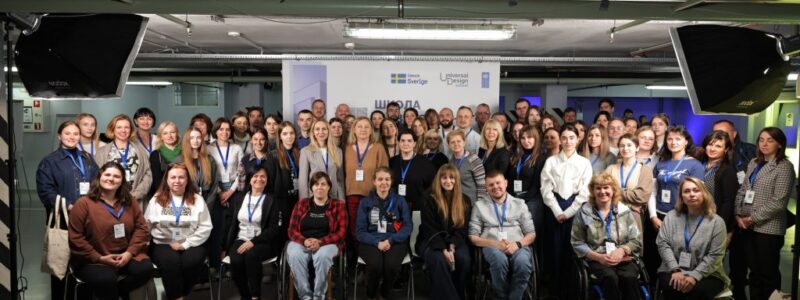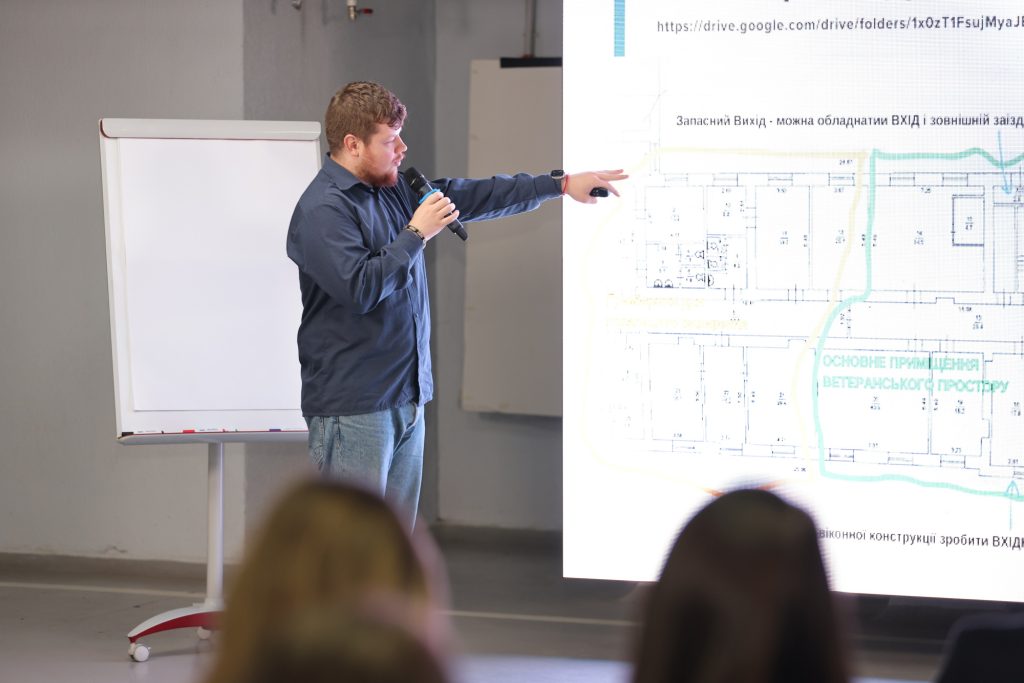
The United Nations Development Program (UNDP) is launching the Universal Design School (UD School), an innovative and much-needed initiative that will contribute to Ukraine’s inclusive recovery, focusing on accessibility-oriented reconstruction.
In addition to practical work on projects, the UD School offers an educational program that includes workshops, lectures, and case studies conducted by experts in the field of accessibility and inclusion. Each group of participants will be accompanied by a mentor who will help them develop practical solutions in accordance with international universal design standards, focusing on improving key sectors such as healthcare, education, public services, and culture.
As part of the school’s program, participants – architects, designers, urban planners and engineers – will work in interdisciplinary teams to solve real-world problems to make public spaces, buildings and services accessible to all, including people with disabilities.
As part of the training, 70 participants from all over Ukraine out of more than 300 applicants were selected to work on real projects in 13 Ukrainian cities, including Kyiv, Rivne, Slavutych, Lviv, and Poltava. The selected projects cover a wide range of public spaces – healthcare facilities, schools, cultural heritage sites, and government institutions – that will be designed to be accessible to all, including people with disabilities.
The UD School is an important response to the needs of Ukraine’s post-war reconstruction, where thousands of people, including those with war-related disabilities, now live in spaces that require inclusive and sustainable recovery. The goal of the school is to provide participants with the practical skills and theoretical knowledge necessary to integrate universal design principles into reconstruction processes, ensuring that new and reconstructed structures are barrier-free.
Christoforos Politis, UNDP Deputy Resident Representative in Ukraine , emphasized the school’s crucial role in Ukraine’s recovery: “The launch of the School of Universal Design could not have come at a more important time,” said Christoforos Politis. ”As Ukraine embarks on the difficult path of rebuilding war-torn cities and communities, we have a unique opportunity to ensure that inclusivity is at the center of these efforts. Universal design is not just technical guidelines, it is a philosophy that puts people’s needs first in planning and development. Whether it is a hospital, school or cultural facility, our goal is to create spaces where everyone can live and thrive with dignity.”
Tetyana Lomakina, Advisor to the Presidential Commissioner for Accessibility, emphasized the significant impact of universal design in today’s environment: “Every space has one goal – to provide an opportunity to live, work, study, relax, buy products – basic activities that are available to everyone without exception. Universal design takes into account the diversity of people and their basic needs, offering solutions that make the space not only inclusive but also fair,” said Tetiana Lomakina. ”We must understand that universal design, like barrier-free accessibility, is not a whim or an additional function, but a requirement for the developer. It’s about social responsibility in communities, a strategic approach to the development of Ukraine, and the consistent transformation of spaces and society.”
The UD School will last until December 2024, ending with the presentation of the final projects. These projects are expected to leave a significant mark on Ukraine’s recovery process by offering real, affordable solutions that will improve the quality of life for all citizens, regardless of their physical abilities.

During this initiative, a presentation was made by Artem Honcharenko, who represented the veteran space of the Institute for Reintegration, Rehabilitation and Professional Development of Veterans “Architecture of Resilience” at the Kyiv National University of Construction and Architecture. In his presentation, he shared his experience of working with veterans, their integration into inclusive projects, and the importance of architectural solutions that can be developed by participants and implemented in veteran space, which are aimed at ensuring accessibility and adaptation of urban space for all citizens, including veterans.
For reference:
The Universal Design School is organized as part of the UNDP Mine Action in Ukraine project with financial support from the Government of Sweden.